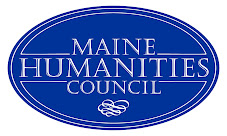September 22, 2008
Eve LaPlante
Schair Memorial Lecture
The 2008 Douglas M. Schair Memorial Lecture on Genocide and Human Rights was a dialogue for Muslim-Jewish understanding, presented in cooperation with the Islamic Society of Portland and the Jewish Community Alliance of Southern Maine. The featured speakers were Judea Pearl and Akbar Ahmed. Pearl, a computer scientist from Israel, and Ahmed, a social scientist from Pakistan, share a concern about the deterioration of relationships between Muslim and Jewish communities around the world. They have become partners in a dialogue project in memory of Pearl’s son, journalist Daniel Pearl, under the auspices of the Daniel Pearl Foundation. Through their public dialogue, they aim to inspire ongoing conversations in the communities they visit that are similarly honest and respectful. They were recognized for this project in 2006, with the first annual Purpose Prize.
